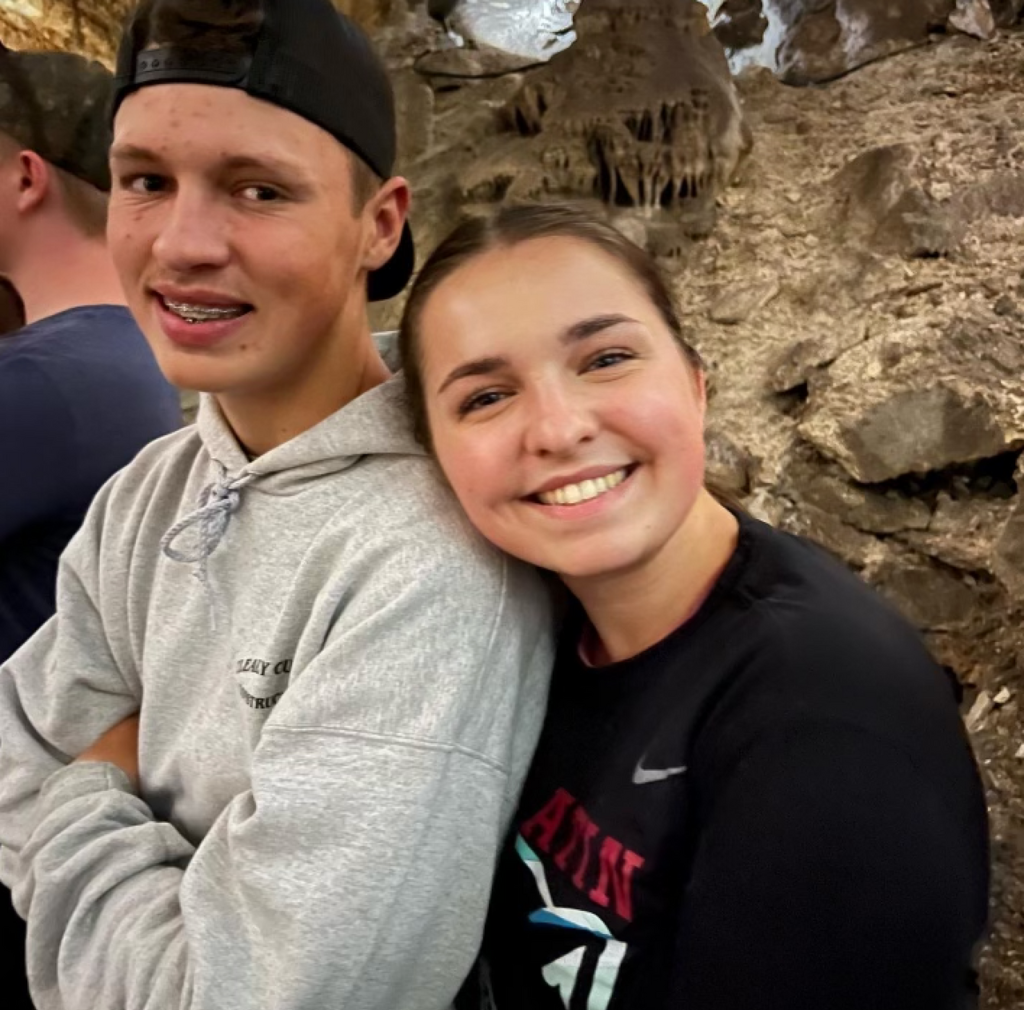
Holy-moley, do my kids bicker at times. At 15 & 17 years, the words can be cutting to each other and heart-wrenching to hear. Nothing amplifies this like vacations and the close-confines of travel. For about 12 hours on our way to Montana, I was inundated with “Get out of my space,” “You’re chewing too loud,” “Why are you breathing on me?” and, my favorite – “I’m literally jumping out of the car if I have to be in here with her for one more second.” I assure you, no lives were lost on this vacation. Sigh.
Fast forward. We go on a beautiful hike. My son is trying to teach his older sister to whistle through her hands. They’re gleefully laughing, giggling, and poking fun at each other. Then, on the drive home, they create a secret handshake and laugh to the point of hysterics. After a long, hot day, they tirelessly head towards bed. I hear my almost-six-foot-fifteen-year-old son say, “Wanna have a sleepover?” I hold my breath. I wait. I listen for the soul-crushing rejection or snide comments that often bubble up between them. My daughter responds, “Sure, that’s cool.” I secretly well up with tears. I hear them laughing and talking as I doze off.
There’s no magic equation that predicts the torturous car ride or the heart-warming slumber party. It could go either way. I try, as often as possible, to stay out of the way of their relationship. I encourage repairs. I insist on respect. I model communication. It’s about all we can do with our kids.
So often, people ask me about siblings and relationships. Truth be told, it’s a tough road to navigate at times. I have 6 half-siblings, myself. Some of those relationships are quite strong, while others are intermittent and not as close as I’d like. And, some I have created distance from with intention. Whew. Here are a few things I know for sure:
- We don’t choose our siblings. Unlike all other relationships, our sibling relationships are chosen for us. While we may share parents, DNA (some but not all), experiences and homes, siblings can be dramatically different in temperament and personality. Over the course of time, siblings can grow closer or further apart.
- Siblings share our history. This can be great when moments are cherished and memories are treasured. This can be tough if there’s been experiences of trauma, distrust or adversity. While you may share history, you may not share the perception of what happened – this can cause insight or strife depending on the perspective.
- Sibling relationships can be healing. There’s no other relationship like siblings that understand, in many regards, what it was like to be raised by your parents during a particular time. Sibling bonds can be beautiful in that regard.
- Like all relationships, sibling relationships will ebb and flow. Be patient with yourself, or with your children’s sibling relationships. It’s normal for relationships to grow in closeness and to subside for periods of time. Less pressure and more compassion is good.
- Model what you’d like to see. If you’re a parent and would like your children to get along better, model that behavior in your relationships. If you’re an adult and wish for more closeness, approach your sibling with love and respect. It can be tough if you feel pre-destined into roles you’ve had since childhood. It’s ok to ask for new experiences and growth. Communication is key.
The final thing I’ll say about sibling relationships, especially adult sibling relationships is that it’s ok to have chosen family. Meaning, often our friends, colleagues or in-laws become like sisters and brothers to us. Allow those beautiful relationships to nurture and heal your soul. And if you’ve had difficult adult sibling relationships, it’s never too late to create meaningful relationships for your children and your family. Model healthy communication, boundaries, and unconditional love. See what grows.
Here are a few books I really love and appreciate about sibling relationships: